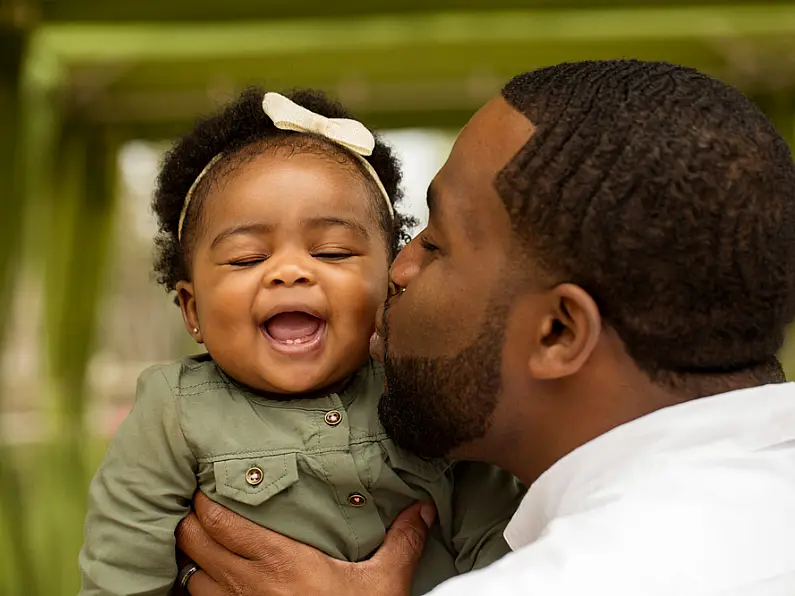It is every mom’s dream to have a healthy bouncing baby. I lived that dream when I held my beautiful boy for the first time, and I continue to live that dream.
However when he was 10 months old, my motherly instincts started to alarm me that something was off. I couldn’t pinpoint exactly what it was, but I noticed his uniqueness.
The first signs
His interest was only in the alphabet and numbers (which I later found out is called hyperlexia). This was evident in parking lots where he would read all the license plates that were within view.
He also made a humming sound when he was playing with his toys, as if he was trying to concentrate.
Playing with his toys was never as instructed; he would spin them repeatedly and observe them from different angles with a tilted head.
His fine and gross motor skills were lacking, and he had little interest in engaging in play with others.
Trusting your motherly instincts
Given my discovery, I began to seek answers and to make others aware of his uniqueness.
It is easy to get caught up in what everyone has to say but it is not easy to ignore the motherly instincts that pierce your thoughts every day.
What is even harder is getting some support on a matter that only you seem to be concerned about.
Having everyone telling you that you are reading too deep into the matter, family asking you to stop labeling, friends saying that you are overreacting, seeking advice from health care professionals only to get misguided responses.
Mom-tuition
I have heard that my son is “just slow”, “boys are way slower than girls” and that “he is so healthy and growing well physically”.
As if because you cannot see the disability then there is none.
“Oh, he doesn't look like he has autism”. Sigh…
Though I wanted to hear that all was well with my son and that he was healthy and growing well, I could not ignore my ‘mom-tuition’.
Neural development
A major concern is the assessment process that was utilized by a medical professional - on all his check-ups - to measure his development.
The focus was mainly on his weight, height and physical features and little to no notice was paid to his neurodevelopment, which also affects his motor skills.
Why wasn’t neural development included as a key factor in his assessments? Yet they were able to say he was progressing normally.
Early intervention
A child could easily get early intervention and be guided in navigating that which does not occur to them naturally.
Instead, there are possibly hundreds and thousands of kids in our society who have been written off as rude, undisciplined, slow and as having no respect for authority.
But all it needs is for us to recognize these children's special needs.
Who is there for them? They are confused, lonely and hurting because they view things differently. How heartbreaking.
Special needs need special recognition
So yes, a big issue we have in our society is recognizing those that are in need and extending that help. Where are the resources? Education for the public? The agenda for the healthcare workers and the support for the families?
We must do better and start somewhere.
A lot of the focus can be geared towards the restructuring of our kids’ checkups; where we broaden the list of developmental signs so that we can start the support to these families as early as possible.
There's no such thing as normal
This article is to shine a light on either the ignorance or lack of care towards that of the big word and even bigger spectrum of AUTISM.
I want to highlight, loudly, that kids on the spectrum are awesome and truly special in the most loving, caring, talented, humorous form of the word.
While I question if there is even such a thing as normal, I must say that kids on the spectrum need guidance
and are not in need of fixing.
Let us all take this approach to getting them the help they need.
What to look out for
Below are a few things to look for in your baby for a general idea (this is not a medical advice and is in no way meant to diagnose a child; please note that every single child is different, whether on the spectrum or not and as a parent you must learn about your child in different and unique ways.)
- Constant humming sounds (as if trying to concentrate)
- Flapping of hands or soft snapping of fingers (called stimming)
- Little to no interest in playing with other kids
- Interested in one set activity/toy (repeatedly)
- Self-hurts when upset (banging of head on an object or on another person)
- Self-directed
- Prefers routine over spontaneous acts
- Limited gross and fine motor skills
The future
Our special needs community requires exactly what it says - special needs. This includes extra care, attention, patience, resources, and support.
In return you will receive love, joy, and a whole lot of happiness.
I encourage mothers to follow their mom-tuition and do what is best for their family. For those who are providing childcare, let us be more inclusive in how we assess our future, our kids.
(excerpt from a poem I wrote to my son after he was diagnosed with autism)
“I noticed you - that little humming sound you made; sounded so much like you needed to concentrate. To block the noise out with your own noise. I wish I had the courage to do that; it takes a lot to not allow the outside world to control you. That’s brave!
I listened to you - with you not saying a thing. Your gestures are the most fluent language I’ve ever (not) spoken. Verbally, the world struggles to say what it really means but without a word you get straight to the point.
I admire you - your sense of humor is like no other; your actions do speak louder than your words. Your smile is the brightest through any adversity; you make sure happiness is present!
You sense my emotions and bring me comfort with your actions. You aren’t patient with anything, but you are patient with me.
Thank you, my beautiful human with Autism ❣️”
The Mommy Diaries is a monthly series in which Caribbean moms open up about their personal experiences and unique journeys to support, inform and inspire other moms.







